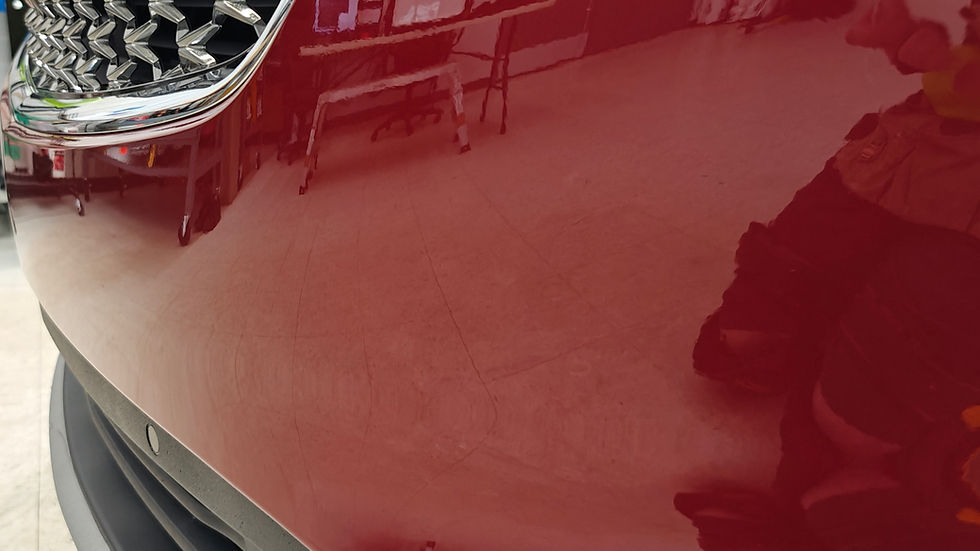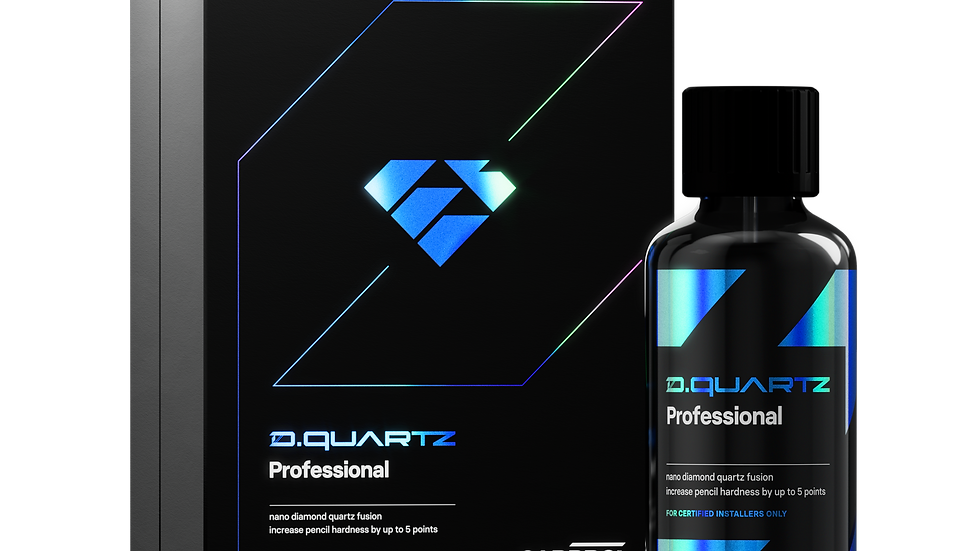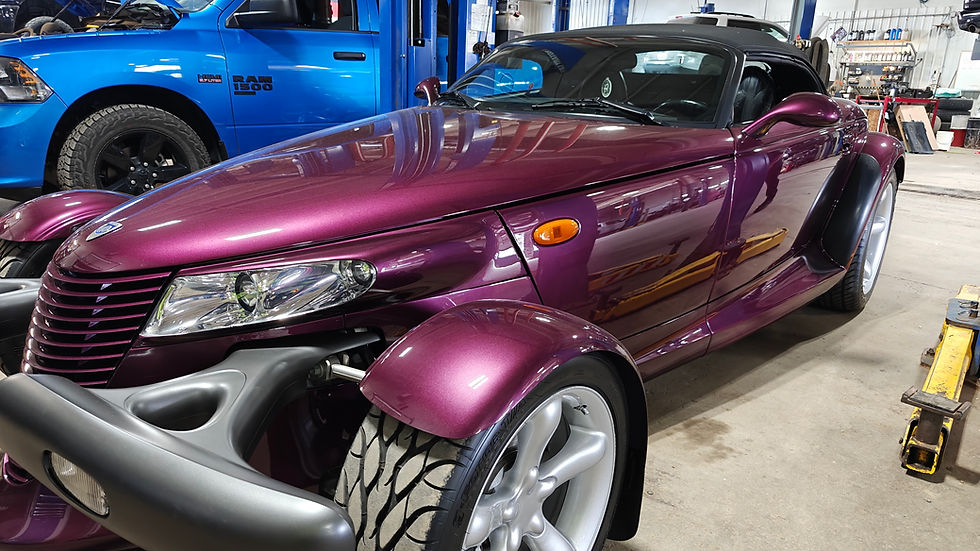Protect Your Ride: Ceramic Coatings vs. Paint Protection Film (PPF)
- ds5656
- Jun 24
- 3 min read
Updated: Jul 31
Keeping your vehicle looking new isn't as simple as it once was. Modern car paints are thinner and less durable compared to those from "back in the day." Thankfully, protective solutions like Ceramic Coatings and Paint Protection Film (PPF) have emerged to help your vehicle maintain that showroom-fresh appearance for years.
At APbyD, we rely on industry-leading products: CarPro Ceramic Coatings (CQuartz Professional and DQuartz Professional) and XPEL Ultimate Plus, known for their innovation and reliability.

1. What Exactly is Paint Protection Film (PPF)?
Paint Protection Film, commonly known as PPF, is a clear, durable urethane film applied to your vehicle’s surface. Our preferred product, XPEL Ultimate Plus, offers unmatched protection with impressive features:
Self-Healing: Minor scratches and swirl marks disappear with heat, keeping your paint flawless.
Durable Defense: Exceptional resistance against rock chips, impacts, and scratches.
UV Protection: Prevents fading by blocking harmful sun rays.
Clear and Glossy: Enhances your vehicle’s appearance with a virtually invisible finish.
2. Understanding Ceramic Coatings
Ceramic coatings create a tough, transparent layer over your paint, protecting it from environmental damage. At APbyD, we trust CarPro’s professional coatings:
CarPro CQuartz Professional:
Adds a durable hydrophobic layer, repelling water and contaminants.
Protects against UV rays and chemical stains (bird droppings, tree sap).
Enhances paint gloss, giving your car a long-lasting shine.

CarPro DQuartz Professional:
Highly hydrophobic.
Provides moderate resistance to swirl marks.
Increases surface hardness by up to 5 points.
Excellent chemical and UV resistance.

3. Key Differences Between PPF and Ceramic Coatings
Protection Type:
PPF: Offers strong physical protection against impacts and scratches.
Ceramic: Mainly chemical protection with limited physical defense (though DQuartz Professional does offer some mechanical resistance).
Application Process:
PPF: Requires precise, professional installation due to its complexity and high-quality materials.
Ceramic: Easier to apply but still best handled professionally, especially with necessary paint corrections beforehand.
Cost:
PPF: Higher initial investment, low ongoing maintenance.
Ceramic: More affordable upfront but consider added costs for paint correction; shorter lifespan.
Longevity:
PPF: Lasts 5-10 years based on conditions and care.
Ceramic: Typically lasts 1-10 years, heavily dependent on maintenance and environment.
Appearance:
PPF: May exhibit slight texture, visible edges possible.
Ceramic: Invisible coating enhancing gloss with no edges.
4. Pros and Cons at a Glance
Paint Protection Film (PPF):
Pros:
Strong physical protection.
Self-healing.
Long-lasting.
Cons:
Higher initial cost.
Professional installation needed.
Possible visible seams.

Ceramic Coating:
Pros:
Excellent chemical and UV resistance.
Enhanced gloss.
Easier cleaning.
Cons:
Minimal physical protection.
Shorter lifespan.
Frequent reapplication needed if not properly maintained.
5. Choosing the Best Protection for Your Vehicle
Go with PPF if you:
Regularly drive in harsh conditions or high-speed highways.
Own classic or exotic vehicles and want to maintain pristine original paint.
Need robust, long-term protection against physical damage.
Opt for Ceramic Coating if you:
Prefer easy cleaning, glossy appearance, and solid chemical protection.
Are budget-conscious but still desire substantial protection.
Have a classic car needing mainly UV and environmental protection.
Combine Both for Ultimate Protection:
Applying Ceramic Coating over PPF offers comprehensive protection, providing both physical durability, exceptional gloss, and hydrophobic properties.
Wrap Up
Both Ceramic Coatings and PPF deliver excellent, distinct benefits tailored to your driving habits and lifestyle. Clearly understanding your specific needs is key to choosing the right protection for your vehicle.
Ready to find out what’s best for you? Contact us at APbyD.ca for personalized guidance and expert advice.







Kommentare